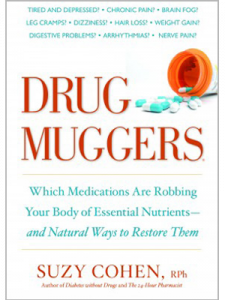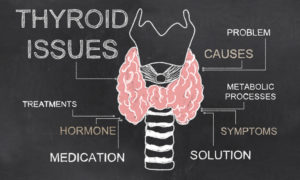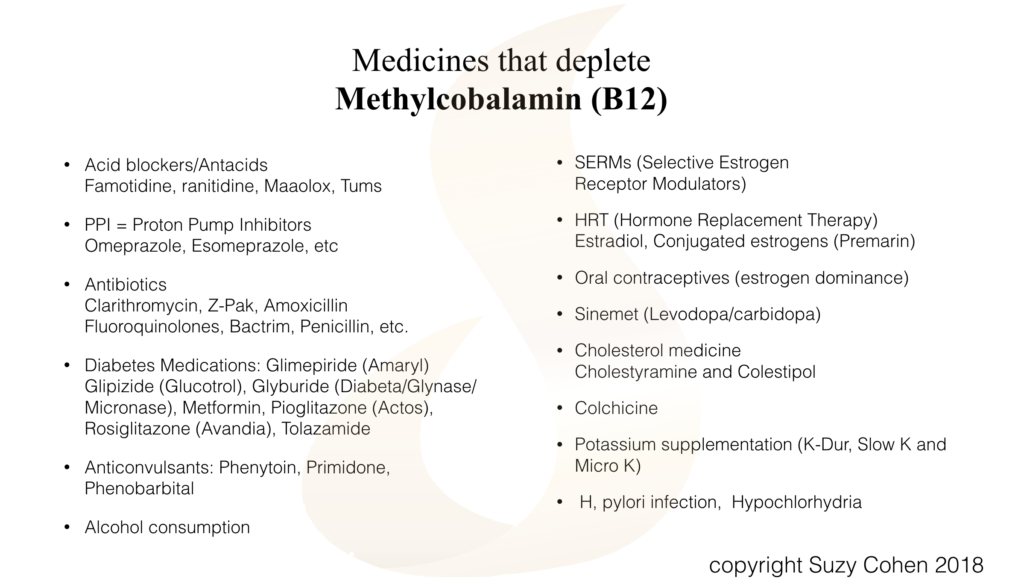What's On This Page?
ToggleBurning mouth syndrome is a very painful neuropathic problem that people sometimes face. Today I have 7 suggestions (actually 8 because my last one is a tremendous bonus tip!) that will help you! Please read this whole blog, don’t skip any sections.
Most people eat with comfort. It is taken for granted by most of us. But what if you had chronic mouth pain? This occurs with a condition called “Burning Mouth Syndrome” which feels like its name! There are usually no sores in the mouth, it is just the sensation of scalding, or intense heat, prickliness or the sensation of a burning mouth. The medical term for people who suffer with this is called “idiopathic glossopyrosis.”
BMS is not simple in its etiology or it’s painful, complex symptoms that wax and wane. It may be accompanied by a metallic taste or dry mouth. It’s different than Lichen planus which is something else altogether. You can read my article about that here: Oral Lichen Planus vs. Oral Cancer: 5 Visual Differences.
Could It Be a Side Effect?
Sometimes Burning Mouth Syndrome or BMS is a side effect! Does that come as a surprise?
It’s common in people who take medications for blood pressure or cardiovascular disease. For example, calcium channel blockers and diuretics can trigger BMS. The most frequent offender for causing burning mouth is the ACE inhibitor class of antihypertensives. Sometimes you also see spontaneous burning mouth occur after antibiotic therapy.
It’s so sad and comes as a surprise to folks to be perfectly okay one day and wake up with a sudden burning mouth! My heart is with you, and I will do my best to help you today with my article. These drugs that I’ve mentioned above are strong drug muggers of various vitamins and minerals so a deficiency in any number of nutrients will cause neuropathy to occur.

It could occur in the mouth, and/or hands and feet, or even the bladder area. Nutrient depletions are not something I can cover lightly, so if this interests you, please refer to my book, Drug Muggers.
If you are looking for a ‘wet blanket’ to throw on most drugs and the nutrient deficiencies they cause, I suggest a superfood green drink mix because one scoop of something like that would help with probiotics, minerals and B vitamins. It would be worth a try for a month or so if you could find one you like.
There are many green superfood drink mixes sold today, and I am confident my YUMMY GREENS tastes the best. It is so delicious plus it has one of the only probiotics known to survive stomach acid… you may not realize this but most probiotics are killed in your stomach before they reach your intestines.
They are listed on the label essentially for show, but in my research, only a couple of strains actually survive, so that is what I put in my yummy greens (aka Thyroid Greens). There are no burns or sores in people with BMS, it’s more of a burning or tingling sensation or partially numb area inside the mouth, palate, or tongue. It may feel like you got burnt. Either way, it’s highly uncomfortable and over time can impact your otherwise pleasant mood.
Tests that May Reveal Burning Mouth Syndrome
There isn’t a lot that conventional medicine offers. There aren’t a lot of drugs to try just a handful. Physicians work you up for the obvious, like GERD (gastroesophageal reflux) or Sjögren’s Syndrome, an autoimmune disorder. Some doctors admit that they don’t know what is causing the pain (termed “idiopathic”) but they’ll still try to help by prescribing a medication called gabapentin. This reduces the sensation of pain, but its use is limited due to side effects. You will be told to drink plenty of fluids (to avoid dry mouth), suck on ice chips and avoid acidic foods that could aggravate the burning mouth pain. Some acidic foods include tomatoes, citrus fruits, soda/carbonated water, sauerkraut, pomegranate juice and coffee.

Another couple of thoughts on Burning Mouth Syndrome… it is possible that the root cause is from anemia, or diabetes, and a complete work up for those conditions may be enlightening.
They might do a work up for Sjögren’s syndrome, an autoimmune disorder that is sometimes connected to burning mouth syndrome. The blood tests for that include anti-SSA (aka anti-Ro) or anti-SSB are the two most specific ones for Sjögren’s syndrome. Some doctors admit that they don’t know what is causing the pain (termed “idiopathic”) but they’ll still try to help you by prescribing a drug like gabapentin (brand name Neurontin®) to reduce the sensation.
Medications for Burning Mouth
Think of gabapentin and other medications in that anticonvulsant category as a nerve-blocker. Use of these types of drugs are limited due to side effects. Next up, doctors will try low doses of benzodiazepines (alprazolam for example) or tricyclic antidepressants (nortriptyline) on patients with burning mouth syndrome.
I’m not a big fan of that because both those drug categories alter brain receptors, and alter who you are, and your entire mood. This may persist for many years and the research is still emerging. If you have not tried these drugs, and they are being recommended to you, I’d say maybe as a last resort. Or perhaps once in a while like every week or two (not every day) then maybe.
If you go to a clinic I’m not sure they really “treat” this pain other than to suggest to you that you drink plenty of fluids (to avoid dry mouth), suck on ice chips, and avoid acidic foods that could aggravate it. Some acidic foods include tomatoes, citrus fruits, soda/carbonated water, sauerkraut, pomegranate juice and coffee.
I suspect this type of advice is of little value to someone who has BMS and suffers 24/7 and limits acidic food and dehydration. If you feel like you can’t ever enjoy ANY meal because the root cause of your neuropathy has yet to be determined, read on. I have some more news that will improve your quality of life for you.
Here’s a list of things that you should consider:
1. Low Thyroid is Associated with Burning Mouth Syndrome
Oral (and dental) pain is honestly a challenging type of pain for anyone to endure and is frequently associated with depression if it persists. Some research is being done to see if thyroid hormone is low because that is a common (often undiagnosed) reason for depression and oral pain.
I can summarize it and tell you that a human study of people with BMS found that thyroid function was low. Hypothyroidism had a negative influence on taste, as well as facial and trigeminal nerve-related sensations.

The researchers concluded, “Hypothyroidism may be responsible for a negative influence on taste and consequent increase in trigeminal sensorial sensation (tactile, thermal and painful sensation).”
Sometimes people get confused because they see a higher than normal (elevated) level on their blood test, but certainly elevated biomarkers mean hypothyroidism. Like the TSH, if it’s very high, that indicates low thyroid. If your antibodies for TPO are high, that also indicates low thyroid (or the possibility for erratic thyroid (T3 and T4) levels at first, that eventually decline and leave you with hypothyroidism).
So a high number could still very well mean low thyroid, which again, is associated with oral pain, neuropathy and some cases of BMS. Low thyroid and Burning Mouth Syndrome are sometimes associated with ageusia, which is the inability to taste. For example, it becomes more difficult to detect the taste of bitter foods, or sour ones, sweetness, saltiness, and umami flavors.
2. Zinc May Help a Burning Mouth
If you have a zinc deficiency, you could have BMS, did you know that? And did you know that a zinc deficiency will also lead to a thyroid deficiency? Does this confirm what I know which is that low thyroid is connected to neuropathic pain in the mouth, but is it the zinc deficiency itself, or the hypothyroidism?
The professors behind one particular study concluded that a zinc supplement could decrease the intensity of burning mouth syndrome (at least in patients with zinc deficiency). This makes me wonder if it’s as simple as restoring the missing zinc or rather the production of more thyroid hormone (since zinc plays a role in thyroid hormone production). FYI, there are some great over-the-counter thyroid supplements available if you’re interested in a natural boost, which might be a more direct means to the end.

Zinc is over-the-counter, and thyroid hormone requires a prescription. There are many kinds of zinc supplements out there and zinc gluconate, picolinate and citrate are probably the ones that are best tolerated. I offer an easy-on-the-tummy CHELATED ZINC.
The only form I don’t recommend is zinc oxide because it will just pass through you without too much absorption.
3. Low-Level Laser is Useful
According to a study in the Journal of Oral Rehabilitation in 2017, low-level laser therapy (LLLT) can improve symptoms. This is really thinking outside conventional therapy and I like this idea.
LLLT was applied to patients who had BMS and their pain intensity was evaluated at the two-week mark, and at the end of four weeks. The group of participants in this trial who received LLLT noted an improvement from baseline to end of treatment. The placebo group of people who received sham laser light noted slight improvement, but nothing compared to the treated group. What’s interesting is that the laser therapy only took two weeks to do it’s job. In other words, no statistically significant differences were noticed from 2 to 4 weeks. As you might expect their anxiety and depression scores also improved over the laser treatment period.
4. Methylcobalamin (Vitamin B12) Can Help
A study once determined that B12 deficiency was definitely associated with BMS. They also checked levels of iron, folate, calcium and magnesium but none of those were deficient in the patients they checked. So if B12 is deficient in people who have this type of oral pain, it begs a new question about their intestinal microbiome.
I say that because B12 is manufactured in the human body from your gut flora, and if you have an unhealthy probiotic stash down there, you won’t make adequate B12. The type of B12 you want is the methyl form, as in “methylcobalamin” because the methyl drops off in your body and goes to work immediately to help make myelin. That helps reduce neuropathy over time. BMS is after all, a condition of neuropathic pain.
Let’s say you make adequate B12 in your gut, but it doesn’t convert to a biologically active form… it’s the same problem, a deficiency of B12. That could also occur if you take cyanocobalamin and can’t convert it to methylcobalamin after you swallow it. If you’re interested in a high-quality brand of this I actually have a custom formula called Mito B Complex, it’s exclusive to my brand because I formulated it. Like other B complex formulas, mine also supports a healthy mood and nervous system. It contains not only methyl B12, but also adeno B12, the mitochondrial form of B12. The image here displays medications that you might be taking that deplete Vitamin B12, and therefore increase risk for Burning Mouth Syndrome.

If a person has low B12 (specifically low methylcobalamin) then homocysteine levels go up. Let’s say their ability to break this down to glutathione is cramped. This could adversely affect the methionine pathway, and ultimately cause higher amounts of two pro-inflammatory metabolites:
1. Homocysteic acid
2. Cysteine sulfunic acid
These two compounds are made in your body and should be neutralized immediately or else they have neurotoxic (painful) effects on the nerves! You can see why B12 is so important in breaking down homocysteine.
Research has confirmed that higher levels of homocysteine are in fact associated with BMS. The only way to lower homocysteine is with high quality B vitamins, no drug will do it!
In 2013, researchers studied this and concluded that lowering homocysteine levels improved symptoms of BMS in patients.
5. Vitamin B6 (Pyridoxine) Can Help Burning Mouth Syndrome
Some reports suggest that elevated blood levels of B6 are seen in patients with BMS. Higher serum levels of B6 imply lower cellular levels. Why isn’t the B6 getting inside the cell? Is it a high-quality form that penetrates the cell membrane or is cheap inactive B6? Is there a genetic reason? Researchers are still teasing this out.
We do know that B6 is needed to break down homocysteine and create more serotonin (a hormone that helps relieve pain). The question remains do you want more or less of B6. Certainly, you want it inside the cells, but less in the blood stream because high serum levels are implicated in Burning Mouth Syndrome.
6. Lipoic Acid is Useful
There is research to support the use of a common dietary supplement called Alpha lipoic acid, which gets further activated in the body to R-lipoic acid. Both alpha and R forms of lipoic acid are available online and at most health food stores today. Alpha-lipoic acid was studied at a dose of 600mg per day for 30 days and the research concluded that it was effective in people with Burning Mouth Syndrome, compared to placebo.
It may sound counter-intuitive that anything with the word “acid” could help burning mouth syndrome, but just mentally dismiss that notion because lipoic acid can and usually does help with neuropathic pain of all sorts, including diabetic neuropathy. Another weird idea is to swish and spit with a mouth rinse that has chili pepper extract!
I know, I know that just sounds unthinkable, however, there is some preliminary research to suggest that using a commercially prepared mouth rinse that contains capsaicin, the active heat-producing compound in peppers, daily for 7 days slightly decreases burning discomfort in people with Burning Mouth Syndrome. There is more early research showing that if you apply a gel to the tongue several times a day for 2 weeks, the pain might slightly improve. It’s not a cure, it essentially blunts pain signals to the brain. If you are interested in what your tongue reveals about your health, read my other article, Your Tongue Tells a Story.
7. Chamomile is Helpful for Oral Pain
The use of chamomile for Burning Mouth Syndrome is not well studied. I came across an article that was published in 2016 in the Journal of Oral Pathology & Medicine. The researchers evaluated a total of 57 patients with Burning Mouth Syndrome and used an oral (repeat ORAL) type of chamomile gel, not the kind you buy for external wounds!
Anyway, the chamomile gel did not outperform the fake gel (placebo) so it really was a bust. But it got me thinking… what if you tried chamomile essential oil?! Could that work? I am not sure, but I have a brand from doTerra of Roman
Chamomile and it can be taken internally, so that means it could be used for something even more simple. What if you took a drop or two and put it in a little glass of water and swished with it. You could swish and spit and see if it gave you some relief. You could also try a tea using chamomile herb.
My rationale for the use of chamomile (even though the study with the gel didn’t work) is based in science. Chamomile contains compounds, including apigenin, that bind GABA receptors in your brain (just like benzodiazepine drugs).
This is partly why Chamomile is so good for relaxing you at bedtime, and settling your stomach! It is a known nerve soother. It is cheap, simple and easily accessible so it’s worth a try if you’re at your wits end. The effect would be pretty quick with topical treatment. Certainly you could drink your tea and maybe even leave a cooled teabag on your tongue for a few minutes.
Bonus Suggestion for BMS
Technically this next one should be #8 on my list but I’m not going to elaborate on it because I wrote a very long, comprehensive wonderful article on it… BITTER MELON. I want you to CLICK HERE to see how they’ve been using this herb to support people who have oral cancer.* If it can help with that, it should be able to help with BMS too.
Resources for Burning Mouth Syndrome
American Family Physician has an article on Burning Mouth Syndrome.
A Scandinavian Article on the Analgesic Effect of Topical Oral Capsaicin Gel.
World Workshop on Oral Medicine VII: Burning mouth syndrome: A Systematic Review.

Suzy Cohen, has been a licensed pharmacist for over 30 years and believes the best approach to chronic illness is a combination of natural medicine and conventional. She founded her own dietary supplement company specializing in custom-formulas, some of which have patents. With a special focus on functional medicine, thyroid health and drug nutrient depletion, Suzy is the author of several related books including Thyroid Healthy, Drug Muggers, Diabetes Without Drugs, and a nationally syndicated column.

